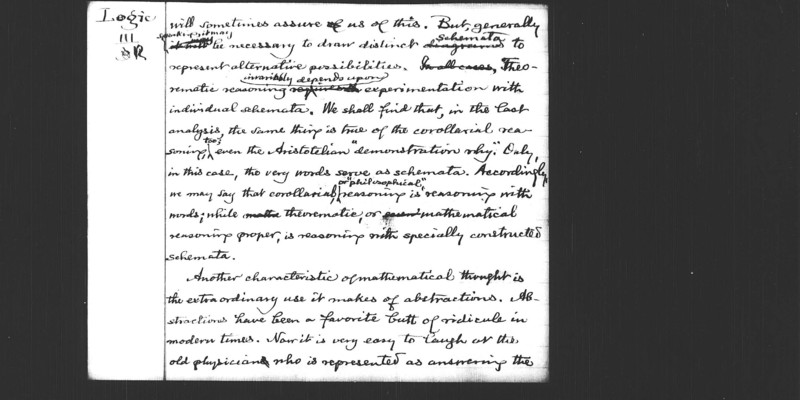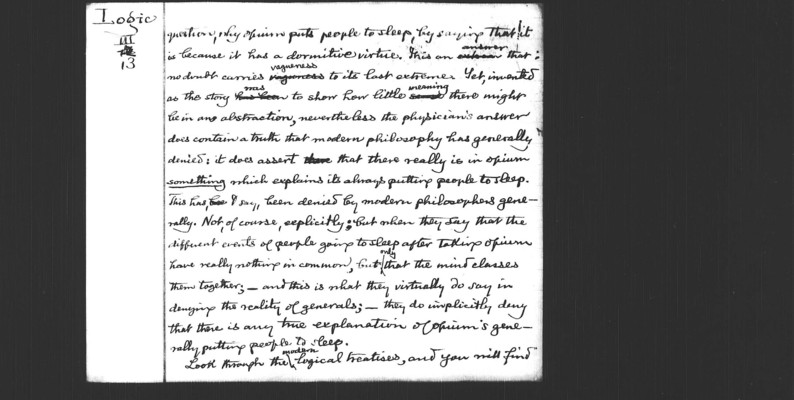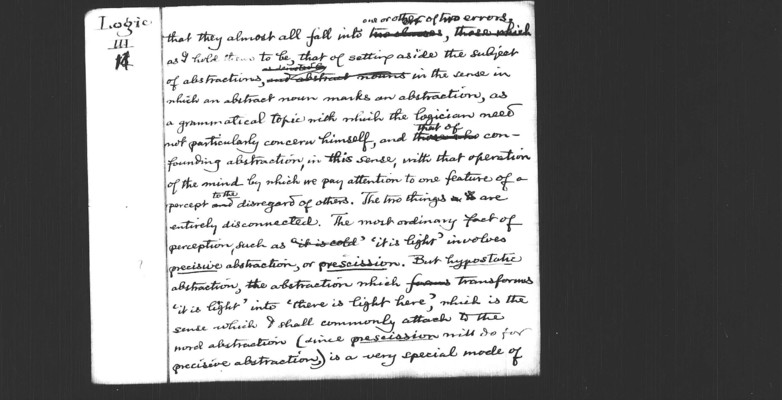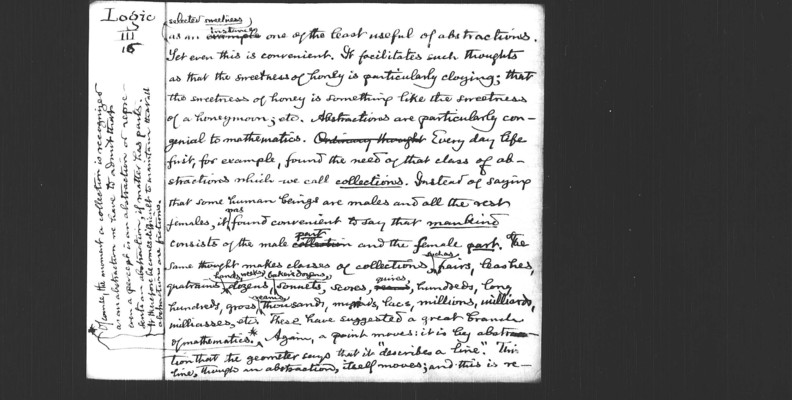Pages
11
will sometimes assure us of this. But, generally speaking, it may be necessary to draw distinct schemara to represent alternative possibilities. Theorematic reasoning invariably depends upon experimentation with individual schemata. We shall find that, in the last analysis, the same thing is true of the corollarial reasoning, too; even the Aristotelian "demonstration why." Only, in this case, tho very words serve as schemata. Accordingly, we may say that corollarial, or "philosophical", reasoning with words; while theorematic, or mathematical reasoning proper, is reasoning with specially constructed schemata.
Another characteristic of mathematical thought it the extraordinary use it makes of abstractions. Abstractions have been a favorite butt of ridicule in modern times. Now it is very easy to laugh at the old physician who is represented answering the
12
question, why opium puts people to sleep, by saying that it is because it has a dormitive virtue. This an answer that: no death carries vagueness to its last extreme. Yet, invented as the story was to show how little meaning there might be in any abstraction, nevertheless the physician's answer does contain a truth that modern philosophy has generally denied: it does assert that there really is in opium something which explains its always putting people to sleep. This has, I say, been denied by modern philosophers generally. Not, of course, explicitly; but when they say that the different events of people going to sleep after taking opium have really nothing in common, but only that the mind classes them together; - and this is what they virtually do say in denying the reality of generals; - they do implicitly deny that there is any true explanation of opium's generally putting people to sleep.
Look through the modern logical treatises, and you will find
13
that they almost all fall into one or other of two errors, as I hold them to be, that of setting aside the subject of abstractions, in the sense in which an abstract noun marks an abstraction, as a grammatical topic with which the logician need not particularly concern himself, and that of confounding abstraction, in this sense, with that operation of the mind by which we pay attention to one feature of a percept to the disregard of others. The two things are entirely disconnected. The most ordinary fact of perception, such as 'it is light' involves precisive abstraction, or prescission. But hypostatic abstraction, the abstraction which transforms 'it is light' into 'there is light here', which is the sense which I shall commonly attach to the moral abstraction (since prescission will do for precisive abstraction,) is a very special mode of
14
thought. It consists in taking a feature of a percept or percepts, after it has already been prescinded from the other elements of the percept, so as to take propositional form in a judgment, (indeed, it may operate upon any judgment whatsoever) and in conceiving this fact to consist in the relation between the subject of that judgment and another subject which has a mode of being that merely consists in the truth of propositions of which the corresponding concrete term is the predicate. Thus, we transform the proposition, 'Honey is sweet' into 'honey possesses sweetness'. 'Sweetness might be called a firtititious thing in one sense. But since the mode of being attributed to it consists in no more han the fact that some things are sweet, and it is not pritended, or even imagined, that it has any other mode of being, there is, after all, no fiction. The only profession made is that me, can consider the fact of honey being sweet under the form of a relation; and so we really can. I have,




